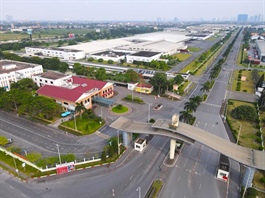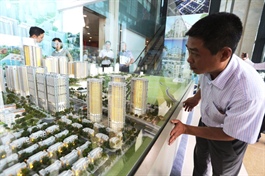Vietnam may become largest retail real estate market in region
Vietnam may become largest retail real estate market in region
Hoang Nguyet Minh, senior director of Commercial Leasing at Savills Hanoi, discussed the short-term prospects of real estate investment at a VIR roundtable on February 7.
Minh remarked that the future of the retail real estate industry will be prosperous due to international companies "constantly investing in expanding markets".
"We can see that the Vietnamese retail market will be able to match the growth rate of Bangkok, currently the largest retail market in Southeast Asia, within the next 1-3 years, as the average retail product prices in both markets move closer to each other," she added.
According to Minh, global investors have always seen Vietnam's real estate market as very promising and are willing to infuse capital, including from sources other than loans. "Several South Korean, Japanese, European, and American investors may invest without the need of institutional funding when targeting the Vietnamese market, but they have no means to invest cash if the legal corridor has not provided them with sufficient peace of mind," she said.
In addition, according to Minh, the hotel and tourist industry has recovered, and the market's logistic systems are continuing to expand. "Apple decided to develop a MacBook plant in Vietnam very recently. This will contribute to the continued development of the Apple and Samsung supply chain enterprises in the country, and will generate favourable development in commercial and service real estate such as offices, retail, and hotels; industrial real estate; and well-developed logistics."
Furthermore, she stated that the residential real estate sector is now the most affected segment in the market.
"The regulatory restrictions on housing developments and business operations, and recent political instability, has produced apprehension among both international and local investors over the real estate industry. They are concerned that construction-ready housing developments may be unable to overcome legal obstacles. This will have repercussions when the market's vast supply expands at the same time, resulting in an overstock without the ability to lower prices"
"The real estate market generated a highly negative feeling across the whole economy in the second half of last year, leaving residential real estate as the most impacted market segment currently," said Minh.
She added that the capital market is tight, real estate credit is a very heated topic, and bonds are tight.
"Combined with the bond issue's negative impact on private investors, this prevents substantial capital flow into the market, even though real estate is an industry that needs enormous resources to accomplish projects, particularly in the long term," Minh said.






















